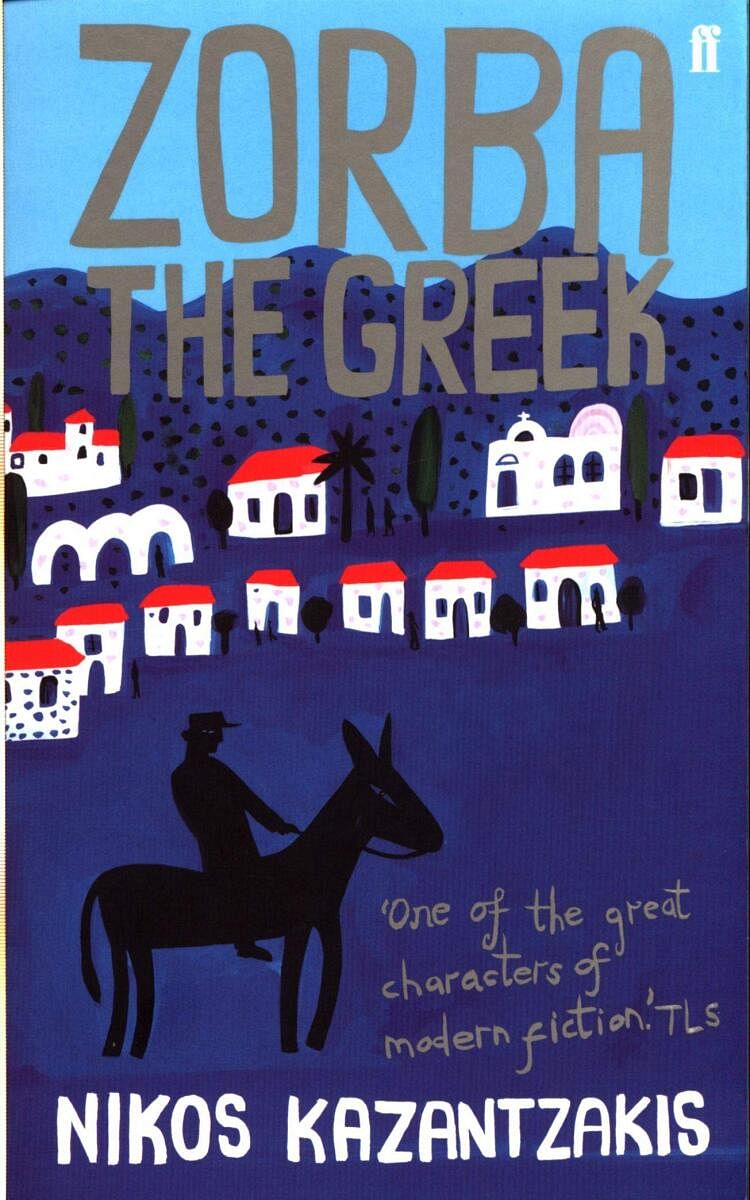
Towards the end of Nikos Kazantzakis’ novel, Zorba The Greek, the title character, an extroverted and loud journeyman who takes up with the story’s bookish narrator to work on a lignite mine on the island of Crete that the latter owns, asks: “Can you tell me, boss…what all these things mean? Who made them all? And why? And, above all… why do people die?”
Zorba asks this question at his lowest ebb having just witnessed the brutal killing of a young woman that shakes him to the core. Another character he cares for, also a woman, dies of pneumonia. It’s the darkest part of a novel that has, till this moment, conveyed its machismo and violent swagger with matter-of-fact observations of a culture that is yet to, at the time the story takes place, even adopt a fraction of modern progressive values.
Zorba The Greek would become Kazantzakis’ most famous work in an illustrious writing career that spanned the first five decades of the 20th century. By the time he died in 1957, he was considered one of the greats of modern Greek literature.
The novel was made into an acclaimed film with Anthony Quinn in the title role and its scope is definitely cinematic. Zorba’s exuberant worldview and lust for life would seduce even the most jaded reader. Kazantzakis based the character and experiences the narrator undergoes on his own brief spell running a lignite mine in the Peleponnesus with his friend George Zorbas. The authenticity of the miner’s life, the old-world morality and codes for living embedded into the society of Cretan villages, the rampant misogyny, the constant undercurrent of violence — these could only be written by someone who had first-hand and lived knowledge of the world in which this story takes place.
The book starts with the narrator at a low point, waiting for a boat to Crete to take charge of the lignite mine. He’s bid farewell to a close friend who’s gone off to help their fellow countrymen in the Caucasus. It’s then that Zorba comes to him and the narrator, who prefers the world of books to real life, is fascinated by this fiercely independent-minded man with a gift for storytelling. They are polar opposites in nature — the narrator may be wealthier and in effect, Zorba's boss, but it is very often the untutored man who takes the lead in the many adventures and mishaps that follow in the time they spend together.
And what an array of adventures awaits them — the lignite mine isn’t as successful as they hope it would be, there’s an attempt to get ownership of a forest from a monastery nearby, they have run-ins with mad monks, Zorba gets romantically entangled with a retired cabaret singer, the narrator reads Dante and tries to square what he’s seeing and experiencing with the Buddhist teachings he’s using as a map to navigate the world. It’s simultaneously bracing and brimming with life while bloodshed and death hover close.
Zorba The Greek is fiction at its prescriptive best, exhorting the bookish amongst us to get out from the safety and security of the page and live life as it should be lived. Even if the narrator comes to the conclusion that his life is meant to be spent writing and not running mines, the fodder for his creativity comes from outside the pages of a book.
Zorba says that men like him ought to live a thousand years — and so he does, long after his time, all credit to the unmatched power of Kazantzakis’ prose.
The author is a writer and communications professional. When she’s not reading, writing or watching cat videos, she can be found on Instagram @saudha_k where she posts about reading, writing, and cats.
That One Book is a fortnightly column that does exactly what it says — it takes up one great classic and tells you why it is (still) great.